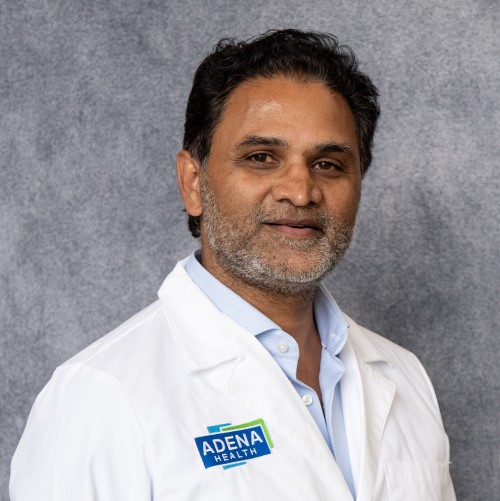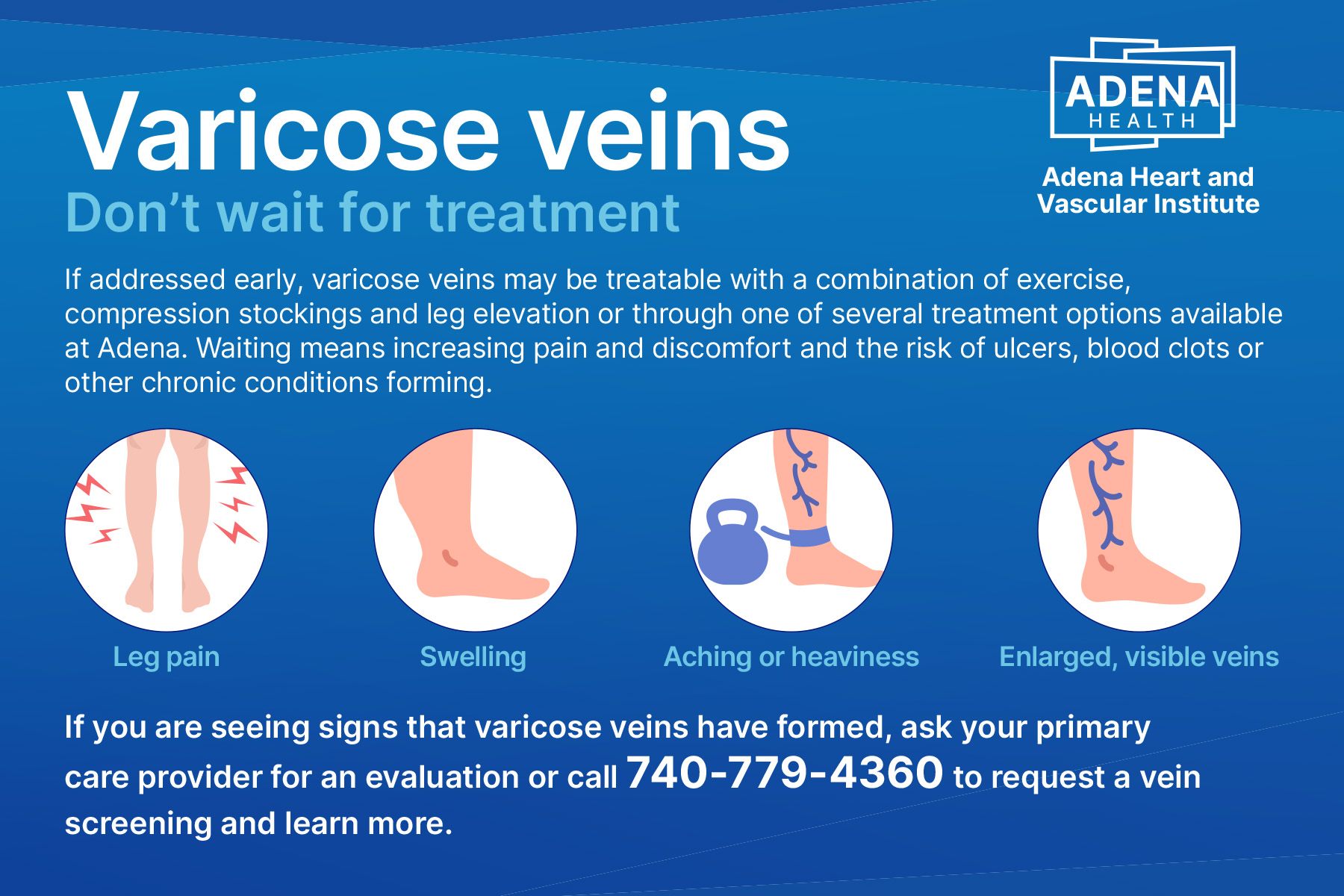Varicose Veins

You may think those varicose veins you’ve noticed are nothing more than an annoyance with their unsightly appearance and discomfort.
Think again, says Adena Health vascular surgeon Vikram Rao, MD.
“If left untreated, patients’ symptoms can progress to severe pain and sometimes even lead to the formation of ulcerations in the leg,” Dr. Rao said.
The good news is Adena offers a wide variety of treatment options for varicose veins close to home performed by a highly-skilled vascular surgery team with the ability to address other potentially serious issues if needed.
“Your varicose vein treatments at Adena are being done by a board-certified vascular surgeon, which is not always the case in all places,” Dr. Rao said. “This is important because we have the capability of also opening up blockages in your veins with stents if we discover that is a concern.”
What are varicose veins?
Varicose veins are swollen, twisted veins normally close to the surface of the skin that have damaged valves. Those valves, when functioning properly, keep blood being circulated from the legs back toward the heart from leaking back down away from its destination due to the effects of gravity.
When the valves are damaged, it puts additional pressure on the veins, which causes blood flow to leak into the surrounding tissue and produce swelling and discomfort that increases over time.
What symptoms will I notice?
Besides pain in the legs, you may notice redness and swelling in the leg or experience fatigue. If you experience bleeding or significant skin discoloration, considerable leg swelling, or veins that are very painful and warm to the touch of the skin, you should be seen sooner rather than later for evaluation.
When noticing symptoms, Dr. Rao recommends patients contact their primary care provider to request an evaluation to determine if they are symptomatic enough to warrant further exploration with a vascular specialist.

Am I at risk of getting varicose veins?
While genetics plays a role in the development of varicose veins and they are far more common in women, several other factors can contribute to their formation. Obesity, pregnancy, changes in women brought about by menopause, and work or hobbies requiring long periods of sitting or standing can lead to formation of varicose veins.
How are varicose veins treated?
“Most patients can be treated if addressed early enough with a conservative approach that usually involves exercise, wearing compression stockings, and elevating their legs when possible, especially when taking breaks from work if they have to sit or stand for long periods of time,” Dr. Rao said.
Going beyond that, several treatment options are available at Adena. They include:
- Phlebectomy, a minor procedure through which bad surface veins are treated and then, through micro incisions made in the leg, are removed. This can be done in a procedure or operating room with the patient under a minor anesthetic.
- VenaSeal, a procedure that involves administering a medical grade glue with the aid of ultrasonography to help guide the needle directly into the veins to be treated. The glue closes the bad veins to allow the blood to reroute and can be performed under a local anesthetic in an office setting.
- Ablation therapy, a simple procedure during which a thin catheter is inserted into a bad vein through the skin and emits radio waves that create heat and encourage the vein to close, allowing the blood to reroute. The same-day procedure can be done in an office setting or operating room and may require a day away from work or other activities following its completion.
Who will be conducting the surgery?
Dr. Rao has been treating varicose veins for two decades. After completing five years of general surgery training, he completed a fellowship in trauma and critical care and another in vascular surgery. He is board-certified to treat the arteries and veins in the body.
His experience as a vascular surgeon also allows him to bring a more comprehensive approach to varicose vein treatment. Because varicose veins in the leg may be sign of other, more serious conditions that could be connected to the formation of the varicose veins, he is able to take a better look at the overall situation facing the patient to see if there are other conditions that need to be addressed.
Act now and avoid pain later
If you are seeing signs that varicose veins have formed or may be forming, ask your primary care provider for an evaluation or call 740-779-4360 to request a vein screening and learn more.
Don’t let an annoyance become a painful reality. Let the skilled team at Adena provide relief sooner rather than later and feel better for it.